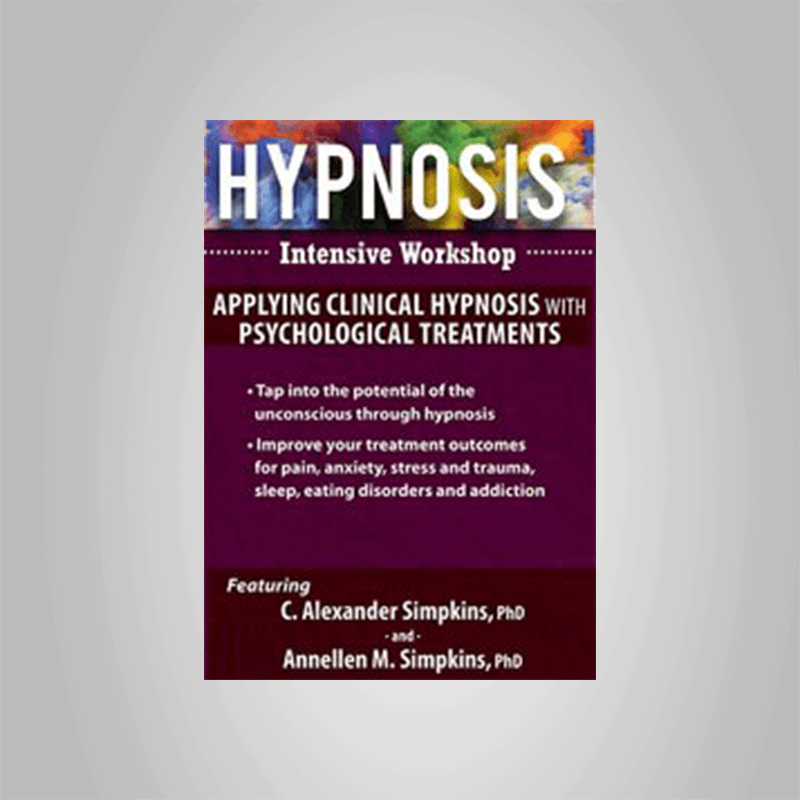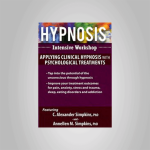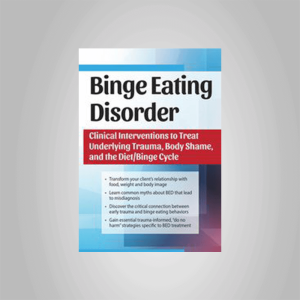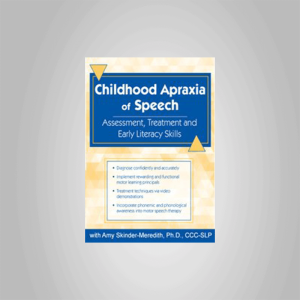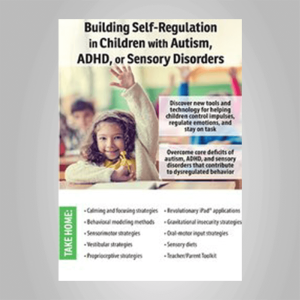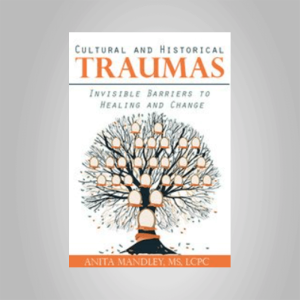C. Alexander and Annellen M. Simpkins – Hypnosis Intensive Workshop: Applying Clinical Hypnosis with Psychological TreatmentsDescriptionTransform your practice to heal anxiety, stress and trauma, sleep, eating disorders, and addiction and pain with this Intensive Workshop.The unconscious is a reservoir of potential, and hypnosis is the way to access that potential. Neurological pathways function automatically and can be engaged and used to help heal disorders that might be difficult to do deliberately and consciously. By working indirectly and unconsciously in hypnosis, you bypass your client’s conscious limitations and enlist resources to help resolve entrenched problems.Go into self-hypnosisWork with a partner to do a pre-trance interview to discover abilities and help for individualizing in tranceInduce tranceUse direct and indirect suggestionDeepen trance with hypnotic phenomenaElicit relaxation and calmActivate positive unconscious processesSuccessfully end tranceThis is your opportunity for personal self-transformation as you also learn about hypnotic techniques that can be applied for clients.If you are new to hypnosis, you will gain the skills you need to start using hypnosis in your practice. And if you are an experienced hypnotherapist, you will add innovative methods to enhance your work. With the latest research, case examples, guided trance experiences, opportunities to work with trance induction, helpful handouts, protocols, and a clear understanding of hypnotic effects in the brain, this workshop will inform, uplift, and transform.HandoutsManual – Hypnosis Intensive Workshop: Applying Clinical Hypnosis with Psychological Treatments (7.9 MB) 173 Pages Available after PurchaseOutlineDay 1: Skill Building in Self-Hypnosis and Hetero-HypnosisWorking with the UnconsciousParadigm Shift on the UnconsciousEast-West CorrelationNeuroscience Research SupportResearch for Working UnconsciouslyAdvantages of HypnosisHow Hypnosis Affects the BrainUnconscious IntelligenceHypnosis Dual EffectHypnosis and Executive ControlDefault Mode NetworkSuggestionDirect and IndirectPost-hypnotic4-Step Method to Overcome NegativeSelf–SuggestionsThe Mind-Body LinkTranceworkNatural Unconscious TendenciesGo In and Out of Self-HypnosisDeepen with Hypnotic PhenomenaHetero-Hypnosis with a PartnerPractice Establishing Rapport andDiscovering Hidden AbilitiesRehearse Inducing trance in SeveralDifferent WaysPerform Trance DeepeningElicit Trance Phenomena and Sensitize to ResponsivenessSeveral Different Methods for EndingTrance SuccessfullyDay 2: Applying Hypnosis for Common Psychological Problems and Further Training in HypnosisPart I: Clinical ApplicationsTrauma and StressAnxietySubstance AbusePainEating DisordersSleepThe Neuroscience of These CommonPsychological ProblemsCase Examples Utilizing Hypnosis for TreatmentApplication ProtocolsExperiential Exercises for TreatmentPart II: Skills Training for Fundamental in HypnosisTrance PracticePre-Trance DiscussionInduction MethodsUsing Direct and Indirect SuggestionTrance DeepeningEliciting Calm and Comfort in Trance withPost-Hypnotic SuggestionsPromoting Positive Use of the UnconsciousEnding Trance TechniquesSkills DemonstrationPre-Trance Discussion TechniquesSuccessful Induction, Deepening and Ending of TranceEliciting Relaxation and CalmDemonstrate Sensitivity to and Utilization of Partner’s ResponsivenessConclusionPrinciples to Guide Your HypnotherapyFinal TranceFacultyC. Alexander and Annellen M. Simpkins, Ph.D.Co-AuthorsC. Alexander Simpkins, Ph.D. & Annellen M. Simpkins, Ph.D, are psychologists specializing in neuroscience, psychotherapy, meditation and hypnosis. Drs. Simpkins have been practicing psychotherapy for more than three decades; and have been researching and practicing hypnotherapy and meditation for four decades, studying hypnosis under G. Wilson Shaffer, dean of Johns Hopkins University, and Director of the Hopkins Counseling Center; hypnotherapy under Harold Greenwald, creator of Direct Decision Therapy; and indirect hypnosis with Milton H. Erickson and Ernest Rossi. They have taught their meditative and hypnotic methods to facilitate mind-brain change to people of all ages. Additionally, they have been involved in neuroscience for 15 years and have been integrating it into treatments and helping to bring the most recent research findings to practitioners. They present seminars at professional conferences, state mental hospitals, university campuses and to popular and professional audiences around the world.The Simpkins are authors of 26 books, many of them bestsellers. Their most recent book is Yoga & Mindfulness Therapy Workbook for Clinicians and Clients (PESI, 2014). Drs. Simpkins have written many books on neuroscience such as, Neuroscience for Clinicians (Springer, 2012), The Dao of Neuroscience (Norton, 2010) and Neuro-Hypnosis (Norton 2010); as well as hypnosis titles: Self-Hypnosis for Women (Radiant Dolphin press, 2004), and Effective Self-Hypnosis with CD (Radiant Dolphin Press, 2000). Their books have over 20 foreign editions and have won numerous awards.
 Brooke Lark – The 60-Minute Food Stop Motion Crash Course
₹5,810.00
Brooke Lark – The 60-Minute Food Stop Motion Crash Course
₹5,810.00
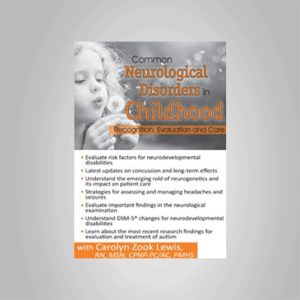 Carolyn Zook Lewis – Common Neurological Disorders in Childhood: Recognition, Evaluation and Care
₹5,810.00
Carolyn Zook Lewis – Common Neurological Disorders in Childhood: Recognition, Evaluation and Care
₹5,810.00
C. Alexander and Annellen M. Simpkins – Hypnosis Intensive Workshop: Applying Clinical Hypnosis with Psychological Treatments
₹10,790.00

